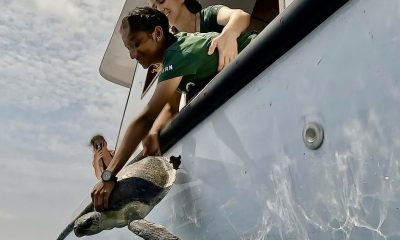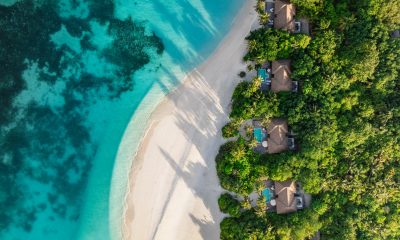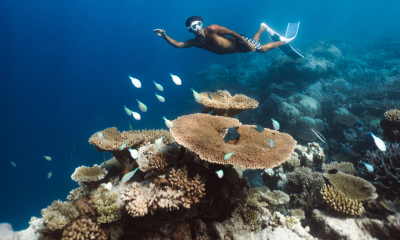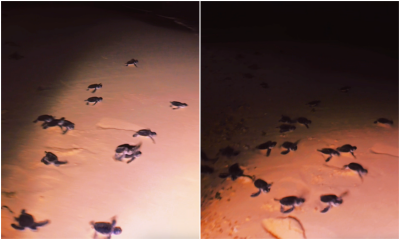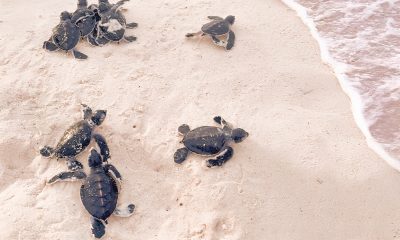Action
Maldives-focused research offers solutions to reduce ‘ghost nets’ that trap sea turtles

Action to prevent thousands of turtles being trapped by abandoned fishing nets in the Indian Ocean is needed urgently, a University of Derby study has concluded.
Researchers are recommending that manufacturers and fishing authorities improve the traceability of nets and other fishing gear to reduce turtle deaths caused by the so-called “ghost nets”, which break off or are discarded.
The study, published under the title ‘Untangling the origin of ghost gear within the Maldivian archipelago and its impact on olive ridley (Lepidochelys olivacea) populations’ in the open access journal Endangered Species Research, examined information about “ghost nets” found around the Maldives in the Indian Ocean over a period of 51 months.
The information was collated by the UK-based Olive Ridley Project charity, which was set up by University of Derby researcher Martin Stelfox in response to the large number of Olive Ridley sea turtles he found entangled in nets while on research trips to the Indian Ocean.
Over that time period, a total of 752 abandoned nets were found and 131 turtles entangled in netting. Around 97 per cent of the turtles found entangled were Olive Ridley turtles.
However, it has been estimated that this number of “ghost nets” could actually have entangled between 3,400 and 12,200 turtles in that time.
The study found that nets with a larger mesh size, nets which were blue in colour, and fragments of net which did not have floats attached to them were more likely to cause entanglement.
Martin said: “What this research gives us is an opportunity to look at the feasibility of making fishing gear, including nets, more traceable to the individuals, companies and communities using it.
“That will require better co-ordination and information-sharing between manufacturers and the authorities which regulate sea fishing around the world.”
One possible solution is to use blockchain data storage technology, which is already being trialled in the Pacific, to improve traceability and accountability in the fishing industry.
The impact of seasonality, particularly the north-east monsoons, and the migration patterns of Olive Ridley turtles to identify where they overlap with fishing activity, should also be the subject of urgent future research, the study advocates.
The report states: “Temporary closures in these overlapping areas during high turtle activity may reduce the likelihood of turtle entanglement as a result of gear loss caused by operational damage or general discard.
“Moreover, establishing free, port side or landing site recycling facilities would discourage small and large-scale fishers from dumping damaged or end of life gear at sea.”
Martin said: “While our solutions must be realistic and workable, they could, if implemented, reduce the amount of fishing equipment which is lost in the ocean and could help encourage better reporting of gear which is lost.
“That could, in turn, lead to fewer turtles dying after becoming entangled in ghost nets in the ocean.”
Every year, it is estimated that 640,000 tonnes of ghost nets are discarded at sea, which amounts to 10 per cent of the world’s total marine debris. Ghost nets are commercial fishing nets that have been lost, abandoned, or discarded at sea.
Every year, they are responsible for trapping and killing millions of marine animals including sharks, rays, bony fish, turtles, dolphins, whales, crustaceans, and birds. Ghost nets cause further damage by entangling live coral, smothering reefs and introducing parasites and invasive species into reef environments.
Between July 2013 and July 2018, there were 601 turtle entanglements recorded in discarded fishing nets in the Maldives alone.
The Maldives is home to five species of sea turtles, the most frequently spotted out of these five are the Green Sea Turtle (Chelonia mydas) and the Hawksbill Turtle (Eretmochelys imbricata). Loggerheads, Leatherbacks and Olive Ridley turtles are the rarer species. Although all species of turtles have been protected by law in the Maldives since 1995, the major threats to these animals continue to be egg and meat poaching and entanglement in marine debris.
All seven of the world’s species of sea turtles are on IUCN’s Red List with the Hawksbill turtle being listed as the most critically endangered out of the seven.
Action
Atmosphere Foundation launches annual dive training scholarship for Maldivians
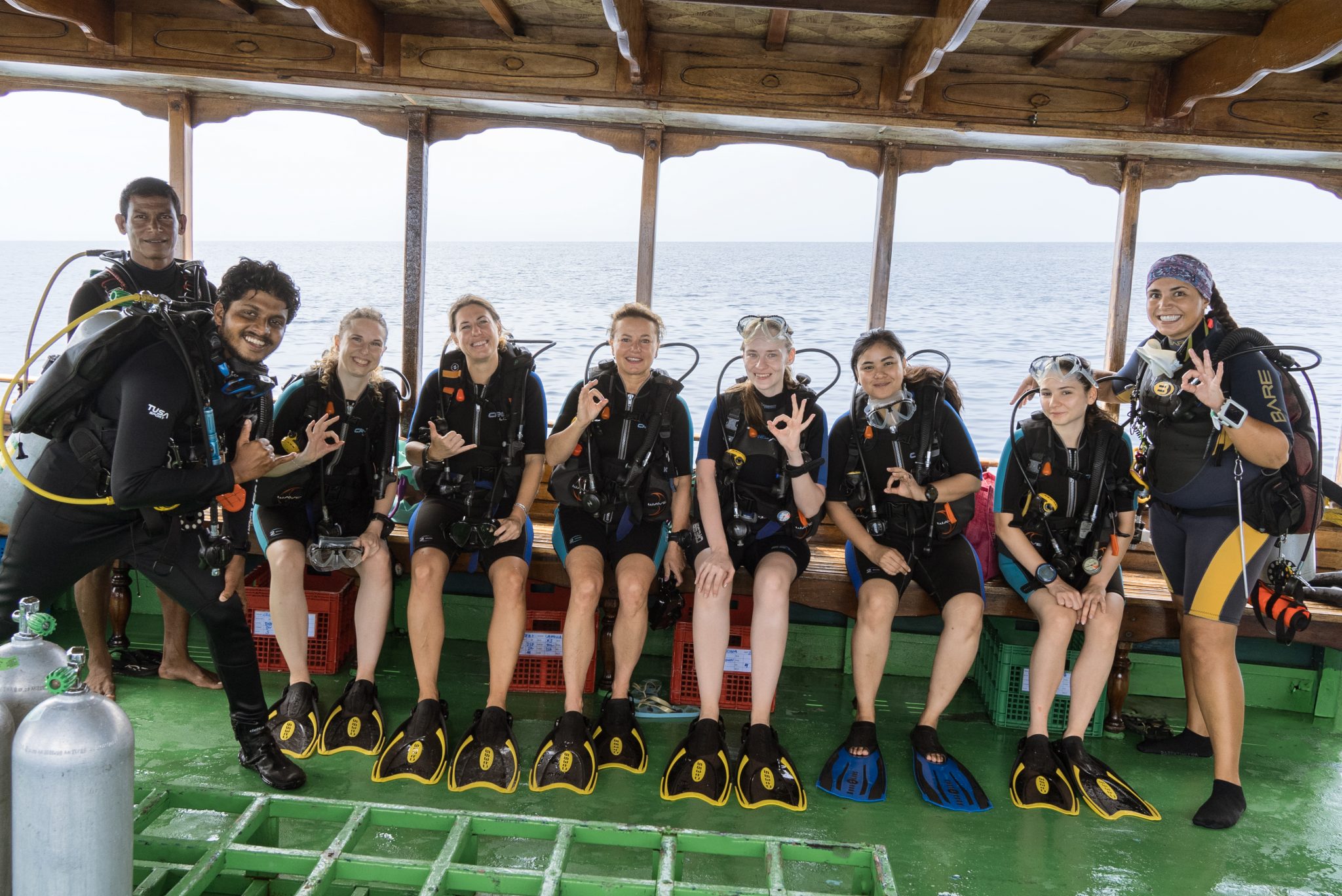
Atmosphere Foundation has launched a new annual scholarship programme that will sponsor 10 Maldivians each year to complete internationally recognised scuba diving training and professional development pathways, supporting youth career growth while strengthening the Maldivian workforce in tourism.
Designed to create clearer entry points into the industry and help Maldivians advance from foundational training to professional roles, the programme will provide sponsored candidates with access to a structured set of certifications that can lead to employment opportunities in resort dive centres, watersports operations, and marine excursions across the country.
The programme will support both beginners and those already working in the sector who want to progress further. By sponsoring these certifications, the initiative aims to help participants develop technical competence, safety capabilities and professional readiness—skills that are essential for career progression in dive and marine-related roles within the tourism industry.
To ensure the programme delivers direct long-term value to the Maldives, successful candidates will be required to work in the Maldives for a specified period after completing their course. This service commitment is intended to strengthen local capacity within the tourism workforce, help resorts access qualified Maldivian professionals, and support career continuity for young people entering the sector.
“Tourism is the Maldives’ greatest economic mainstay, and our future depends on ensuring Maldivians are represented across the industry—not only at entry level, but in specialist and leadership positions as well,” said Abdul Azeez Abdul Hakeem, Vice President of Atmosphere Foundation. “This programme is designed to remove barriers to training, equip young people with globally recognised qualifications, and support them to progress from the beginning of their careers to new heights. The service component also ensures that the skills gained remain in the Maldives and contribute to the development of our tourism workforce.”
Atmosphere Foundation continues to develop and support initiatives that contribute to community wellbeing and opportunity, with a focus on empowering youth, building skills, and creating sustainable pathways for Maldivians. The annual dive training sponsorship programme builds on the Foundation’s broader mission to deliver meaningful, practical support that helps individuals and communities thrive—while contributing to the long-term resilience of the national economy.
Further information on how to apply, programme partners and timelines will be announced soon through Atmosphere Foundation’s official channels.
Action
Bestbuy Maldives supports health, wellness as Main Sponsor of MNU Marathon 2026
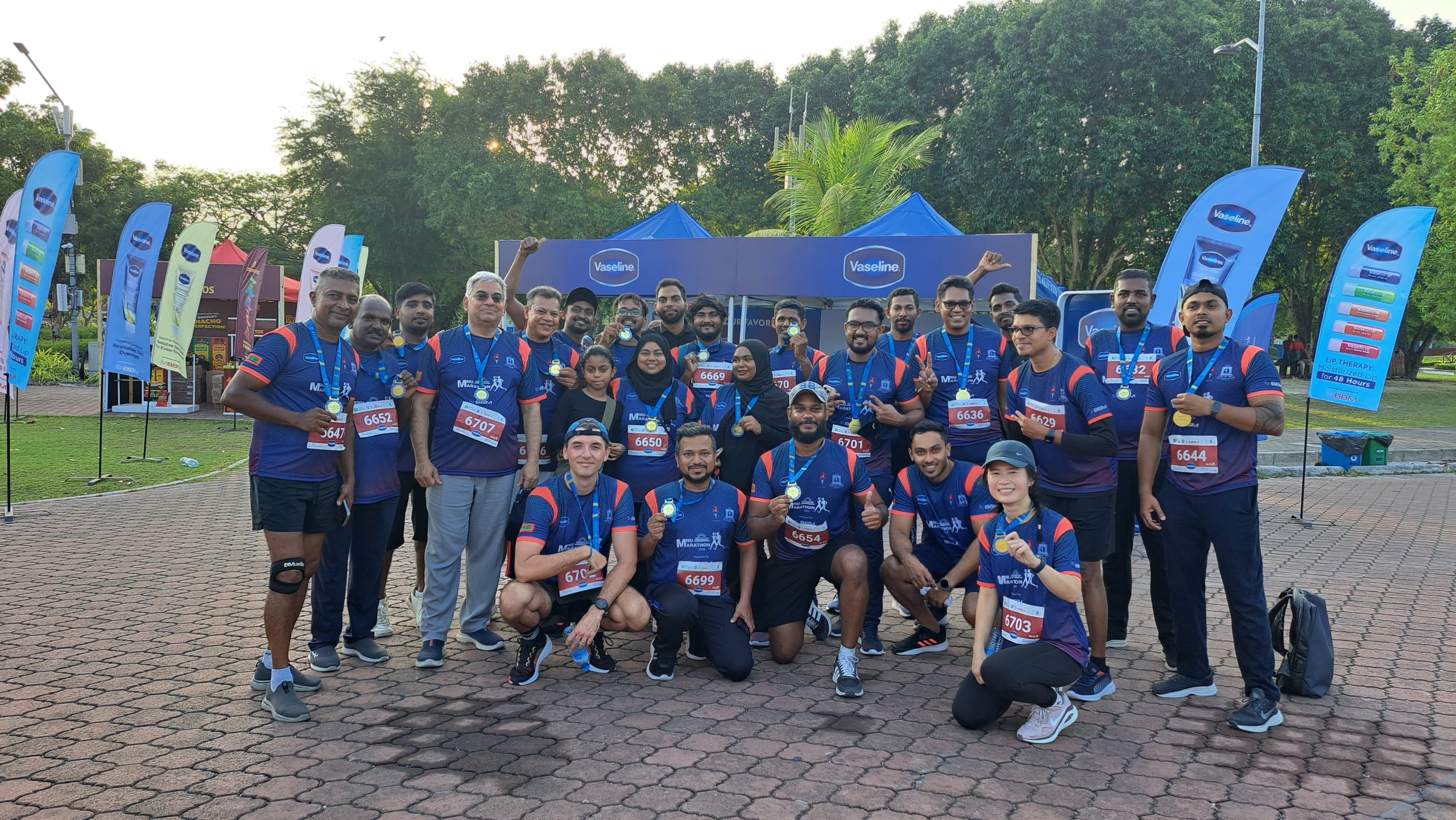
Bestbuy Maldives (BBM), one of the Maldives’ leading and most trusted distribution partners to the hospitality and retail sectors, served as the Main Sponsor of the MNU Marathon 2026, organised by Maldives National University (MNU) and held in Hulhumalé on 13 February. The event drew over 1,500 runners and focused on promoting fitness, health and wellness, active lifestyles, and community unity, as part of a long-term sponsorship arrangement.
As Main Sponsor, BBM maintained a strong on-ground presence throughout the marathon, with high brand visibility and activations designed to engage participants and spectators.
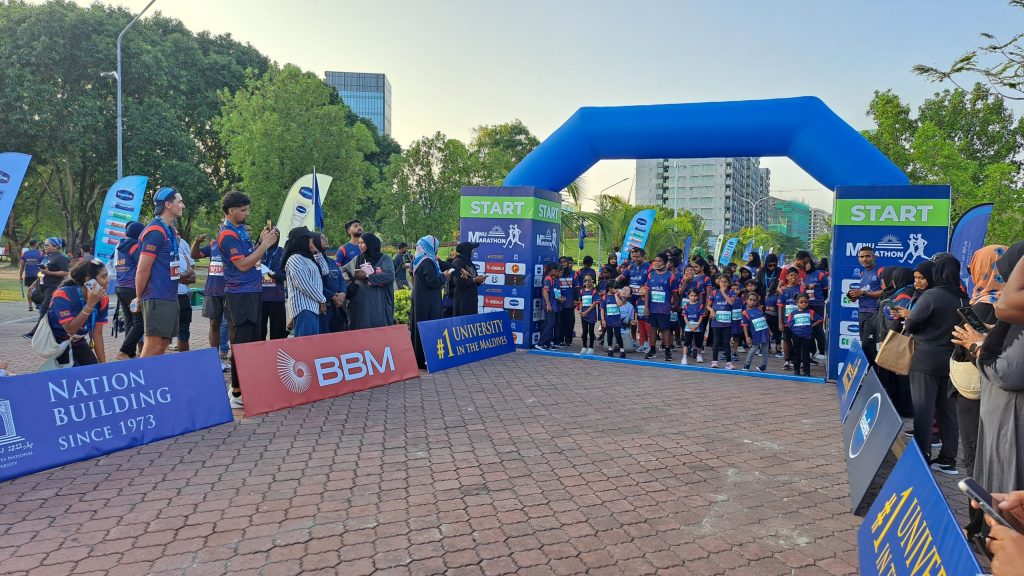
A key highlight was BBM’s collaboration with Unilever – Vaseline, with free product samples distributed to all marathon participants, reinforcing messages around skincare. Additional brand activations included a dedicated Cornitos stall offering free nacho samples, and a Godrej Aer booth focused on product sampling and brand awareness. BBM also distributed Cavin’s milkshake samples to runners at the finish line.

BBM’s participation extended beyond sponsorship, with more than 50 BBM employees taking part in the marathon as runners. Representatives from Unilever International also joined the run, underscoring a shared commitment to wellbeing and community engagement.
“Supporting the MNU Marathon aligns closely with BBM’s commitment to healthier communities and meaningful national partnerships,” said Ali Afrah Hassan, Head – Human Resources, Administration & Corporate Affairs at Bestbuy Maldives. “It was especially rewarding to see our colleagues participate as runners alongside the wider public, demonstrating that wellbeing is part of our culture, not just our sponsorship. We are proud to work with MNU to create a positive platform that brings people together around health, wellness and unity.”
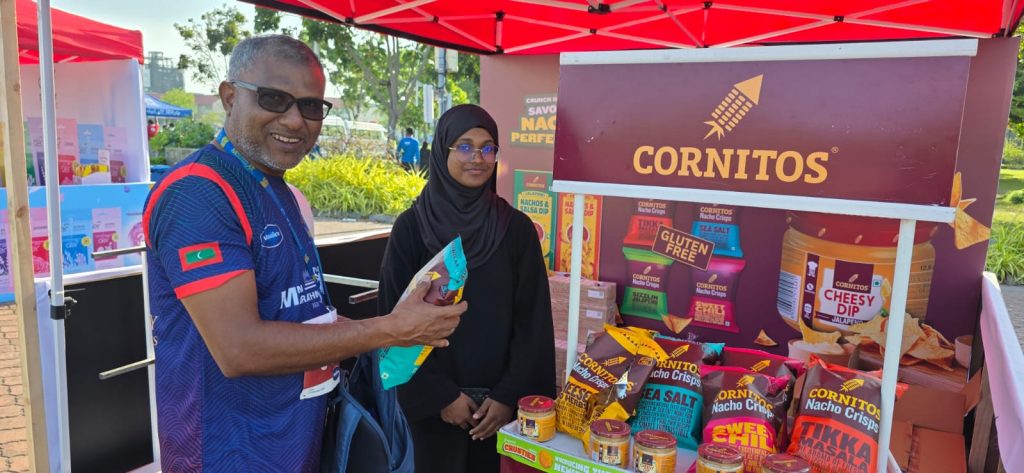
Through its portfolio of internationally recognised FMCG and consumer lifestyle brands—spanning food and beverage, personal care, and home care—BBM continues to support initiatives that create shared value for communities, partners and customers across the Maldives. The company’s involvement in events such as the MNU Marathon reflects BBM’s broader commitment to championing positive lifestyles, strengthening local partnerships, and backing platforms that bring people together with purpose.
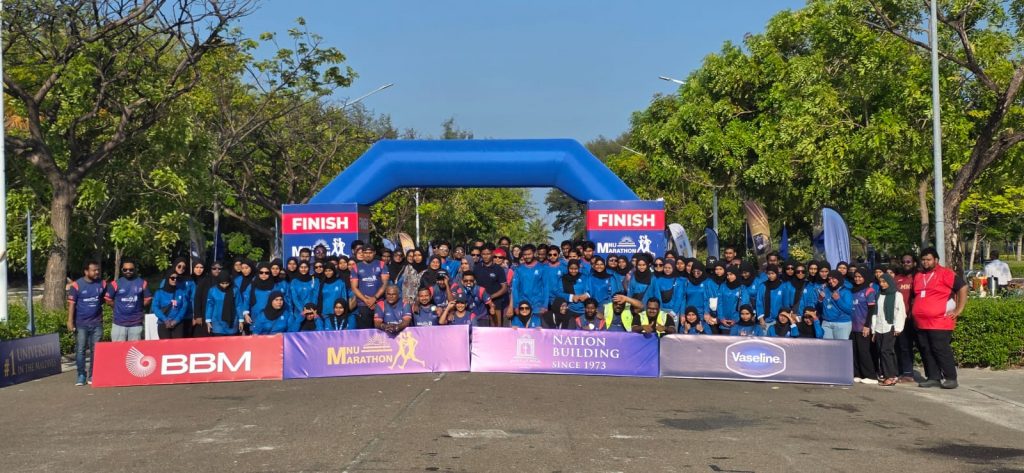
BBM noted that the event strengthened its partnership with Maldives National University and provided an opportunity to connect directly with the Maldivian community in an uplifting setting, reinforcing BBM’s role as a responsible corporate partner supporting national initiatives.
Action
LUX Tennis joins St. Regis Maldives Vommuli to expand active lifestyle programme

St. Regis Maldives Vommuli Resort has announced a partnership with LUX Tennis, strengthening the resort’s established tennis offering and introducing plans for a new padel court. The collaboration expands the resort’s active lifestyle programme, with a particular focus on families and multi-generational travel.
The St. Regis brand draws on the legacy of the Astor family, founders of the original St. Regis New York, whose Gilded Age lifestyle celebrated refined leisure and sporting pursuits. Tennis, in particular, became a symbol of elegance within the Astor social circle, reflecting a culture shaped by hospitality, recreation and sophistication. This heritage continues across the St. Regis portfolio today, where classic sports remain an integral part of the brand’s identity.
Set within the resort’s private island environment, the enhanced LUX Tennis programme is designed to elevate on-island tennis experiences for guests of all ages and skill levels. The programme features expert-led coaching, bespoke clinics and visiting residencies by internationally recognised professionals, offering guests opportunities to train, play and engage with elite talent in an accessible and inspiring setting.
Confirmed visiting professionals include Angelique Kerber, three-time Grand Slam champion and former world number one, who will visit from 29 to 31 March 2026, and Feliciano López, former Spanish champion with a career-high singles ranking of world number 12, scheduled from 16 to 17 May 2026.
The expanded tennis programme is designed to integrate seamlessly with island life, offering everything from relaxed family matches and junior-friendly coaching to more focused sessions for experienced players. Activities are structured to complement time spent at the beach, spa experiences and family dining.
The St. Regis Maldives Vommuli Resort features 77 beachfront and overwater villas, each with a private pool, alongside facilities such as the John Jacob Astor Estate, the largest overwater three-bedroom villa in the Maldives. Guests also have access to the award-winning Iridium Spa, six dining venues and a private yacht available for charter, reinforcing the resort’s positioning as a destination for both leisure and active pursuits.
-

 Action1 week ago
Action1 week agoBestbuy Maldives supports health, wellness as Main Sponsor of MNU Marathon 2026
-

 Cooking1 week ago
Cooking1 week agoMaagiri Hotel invites guests to celebrate Ramadan with daily Iftar
-

 Awards1 week ago
Awards1 week agoEllaidhoo Maldives secures HolidayCheck Gold Award for second consecutive year
-
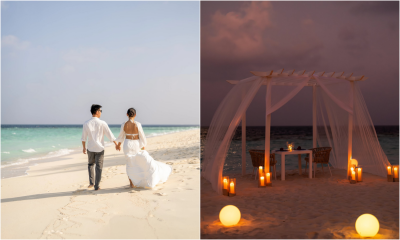
 Love1 week ago
Love1 week agoRomance in nature: Valentine’s week at Eri Maldives
-
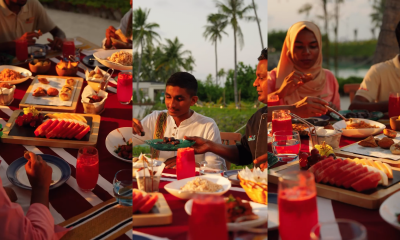
 Food1 week ago
Food1 week agoOBLU XPERIENCE Ailafushi invites guests to break fast island-style this Ramadan
-
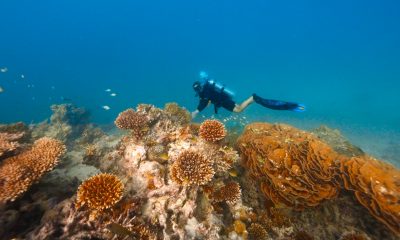
 News5 days ago
News5 days agoVentive Hospitality aligns Maldives portfolio with Green Fins marine sustainability platform
-
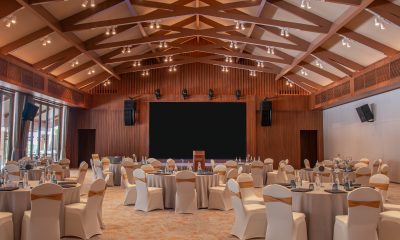
 Business5 days ago
Business5 days agoFeydhoo Hall opens at dusitD2 Feydhoo Maldives as new event space
-
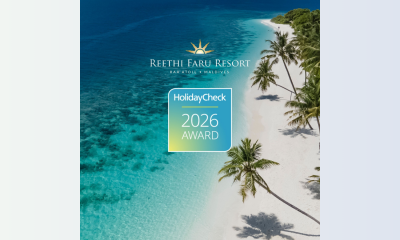
 Awards1 week ago
Awards1 week agoReethi Faru Resort recognised with HolidayCheck Award 2026



